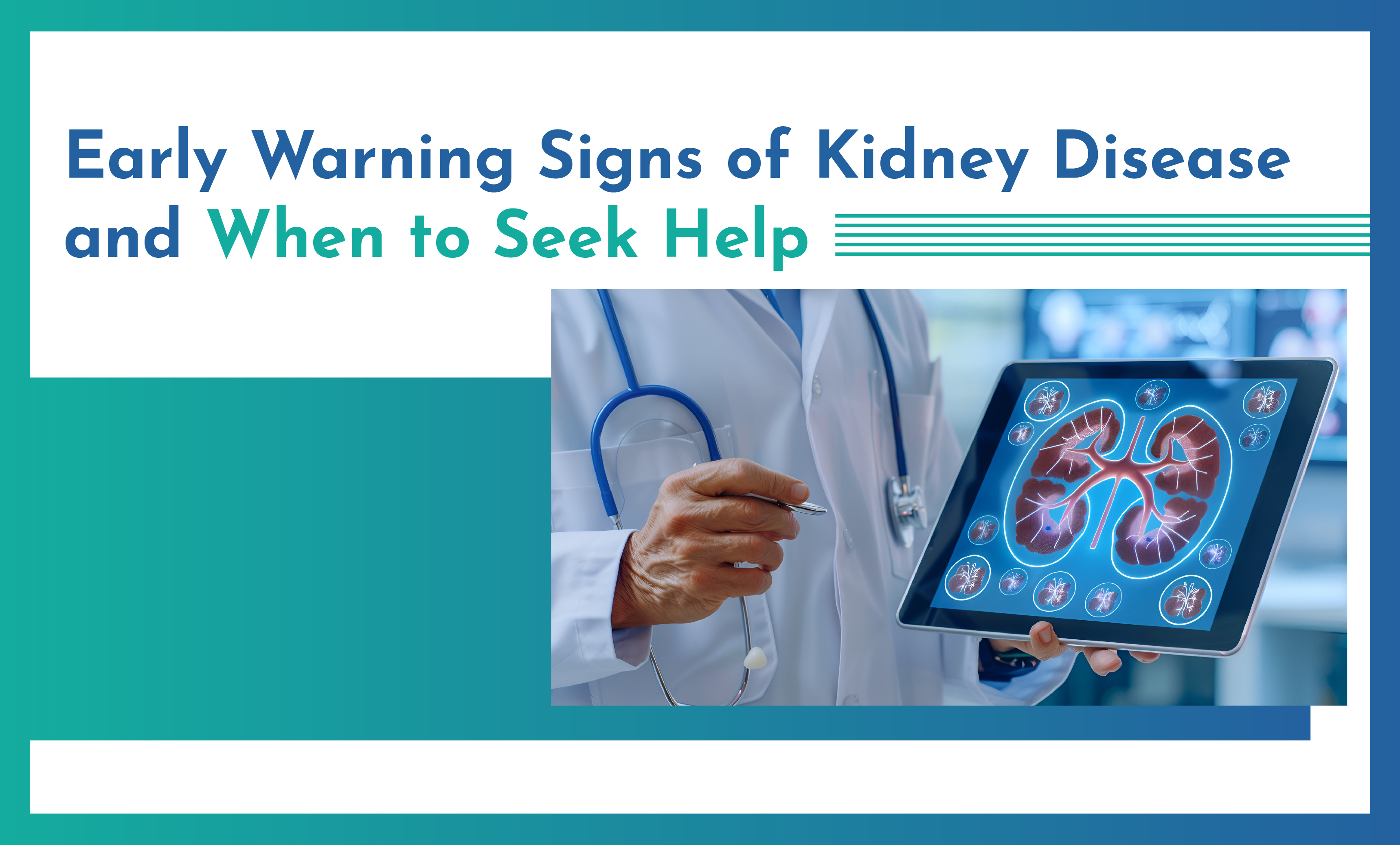
Early Warning Signs of Kidney Disease: When to Seek Medical Help
Kidney disease is a growing concern that affects millions of people worldwide. The kidneys play a vital role in filtering waste and excess fluids from the blood, balancing electrolytes, and supporting overall health. Unfortunately, early-stage kidney disease often goes unnoticed because symptoms can be subtle or mistaken for other common conditions. Dr. Vijay Patel, a renowned nephrologist in South Mumbai, emphasizes the importance of recognizing early warning signs and understanding when to seek medical help
Understanding Kidney Disease:
Kidney disease occurs when the kidneys lose their ability to function properly, which can happen due to various reasons such as diabetes, high blood pressure, infections, or genetic factors. Chronic kidney disease (CKD) develops over time, while acute kidney injury (AKI) may occur suddenly. Both types can lead to severe health problems if not addressed promptly.
Why Early Detection is Crucial?
Dr. Vijay Patel highlights that early detection of kidney disease can make a significant difference in treatment outcomes. When diagnosed in the early stages, kidney disease can often be managed effectively, delaying progression and improving the quality of life. This is why being aware of the warning signs and seeking help promptly is essential.
Early Warning Signs of Kidney Disease:
- Fatigue and Weakness: One of the first signs of kidney disease is often persistent fatigue and weakness. Healthy kidneys produce a hormone called erythropoietin, which helps the body create red blood cells. When the kidneys are impaired, erythropoietin production decreases, leading to anemia and a general feeling of tiredness.
When to be concerned: If you notice constant fatigue that doesn’t go away with rest, it could be more than just stress or lack of sleep. Consult your doctor to rule out potential kidney issues.
- Changes in Urination Patterns:
The kidneys are directly involved in urine production, so any changes in urination can be a red flag. Watch out for:
- Frequent urination, especially at night
- Decreased urine output, which might suggest reduced kidney function.
- Foamy or bubbly urine, which indicates protein in the urine.
- Blood in the urine, known as hematuria, is a serious warning sign that requires immediate attention.
When to be concerned: Sudden or persistent changes in urination should be assessed by a healthcare professional.
- Swelling in the Hands, Feet, or Ankles:
Kidneys help remove excess fluids from the body. When they are not functioning well, fluid retention can occur, causing swelling in the extremities. This is known as edema and is a clear sign that the body is not maintaining a proper fluid balance.
When to be concerned: If you notice persistent swelling that doesn’t go away, it’s crucial to consult a doctor.
- Shortness of Breath:
Fluid buildup in the body can move to the lungs, making it difficult to breathe. This symptom can sometimes be mistaken for asthma or heart disease. Dr. Patel advises that if shortness of breath is accompanied by other kidney disease symptoms, it should be taken seriously.
When to be concerned:Seek medical attention if you experience unexplained shortness of breath, especially if it occurs in combination with swelling or fatigue.
- Persistent Itching and Dry Skin:
Kidneys are responsible for filtering waste products from the blood. When they don’t work properly, waste can accumulate in the body, leading to dry, itchy skin. This can be a sign of an imbalance in minerals and nutrients, which is common in advanced kidney disease.
When to be concerned: If moisturizing and hydration don’t relieve the itching, consider speaking to your doctor, as it could be related to kidney function.
- Loss of Appetite and Nausea:
As waste products build up in the body, they can affect the digestive system, leading to nausea, vomiting, and loss of appetite. This can contribute to unintentional weight loss and malnutrition.
When to be concerned:If you’re experiencing a consistent loss of appetite or frequent bouts of nausea, it could be a sign of kidney issues.
- Metallic Taste in the Mouth: A buildup of waste in the blood can lead to a condition known as uremia, which may cause a metallic taste in the mouth and bad breath. This often results in food tasting different or unappealing.
When to be concerned: If you notice a persistent metallic taste and other symptoms of kidney disease, it’s time to consult a specialist.
- Muscle Cramps: Kidneys help balance the body’s electrolytes, including calcium and phosphorus. An imbalance can lead to muscle cramps and spasms.
When to be concerned:Occasional muscle cramps are common, but frequent and painful cramps could be a sign that the kidneys are not balancing minerals properly.